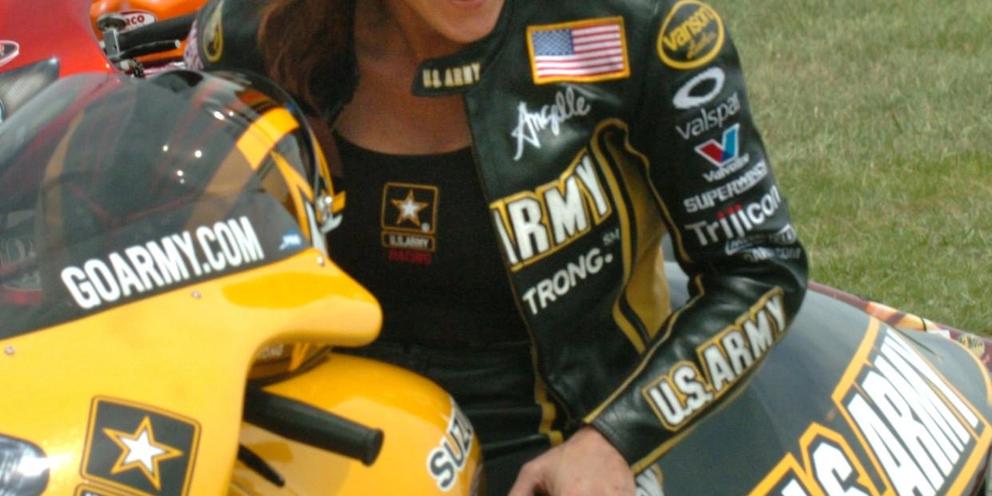
Women in Motorsports – The Race to Equality
Army Suzuki racer Angelle Sampey
It’s a little-known fact, but women have a long history of racing going back 121 years and more. While men may be the first to race in 1867 with their steam-powered carriages, women aren’t too far behind. Thirty years later, the first female race took place on a Parisian racetrack with motorized tricycles.
Women may have a long relationship with motorsports, but it is still a predominately male sport. Sponsors are often slow to support female drivers and racing teams, and not everyone is keen on welcoming women to the sport. Despite the occasional less than warm welcome, women are making a name for themselves in motorsports from NASCAR to Formula One and even the Indy 500.
Let’s look at some of the top female names in motorsports, past, and present.
Celebrating the Top Women in Motorsports – Then and Now
Women have been paving the way for females in motorsports since the 1920s. Here are some of the remarkable trailblazers and the women that are paving the way today.

Image Credit: Wikimedia Commons
Hellé Nice
Mariette Hélène Delangle, better known as Hellé is a role model for females in motorsports. The French model, dancer, and avid skier took up automobile racing after a knee accident. Driving an Omega-Six, she won the all-female Grand Prix at Autodrome de Montlhéry in 1929.
Soon Hellé was on the Bugatti track, racing alongside male drivers. Her friendship with Ettore Bugatti also got her behind the wheel of a Bugatti Type 35C during five French Grand Prix races. Endorsement deals quickly followed, along with fame.
She may not have won any races against male drivers, but Hellé often finished in front of most of her competitors. Hellé was the only female driver on the Grand Prix circuit, and she wasn’t afraid to branch out. She raced in hill climbs and rallies, including the one held annually in Monte Carlo.
Her racers weren’t without accidents. Three drivers were killed in 1933 at the Monza Grand Prix. Her Aston Martin somersaulted, colliding with the grandstands in 1936. Six spectators were killed, and 30 injured. Hellé survived the accident and she continued racing until 1939 when Europe became engulfed in WWII.
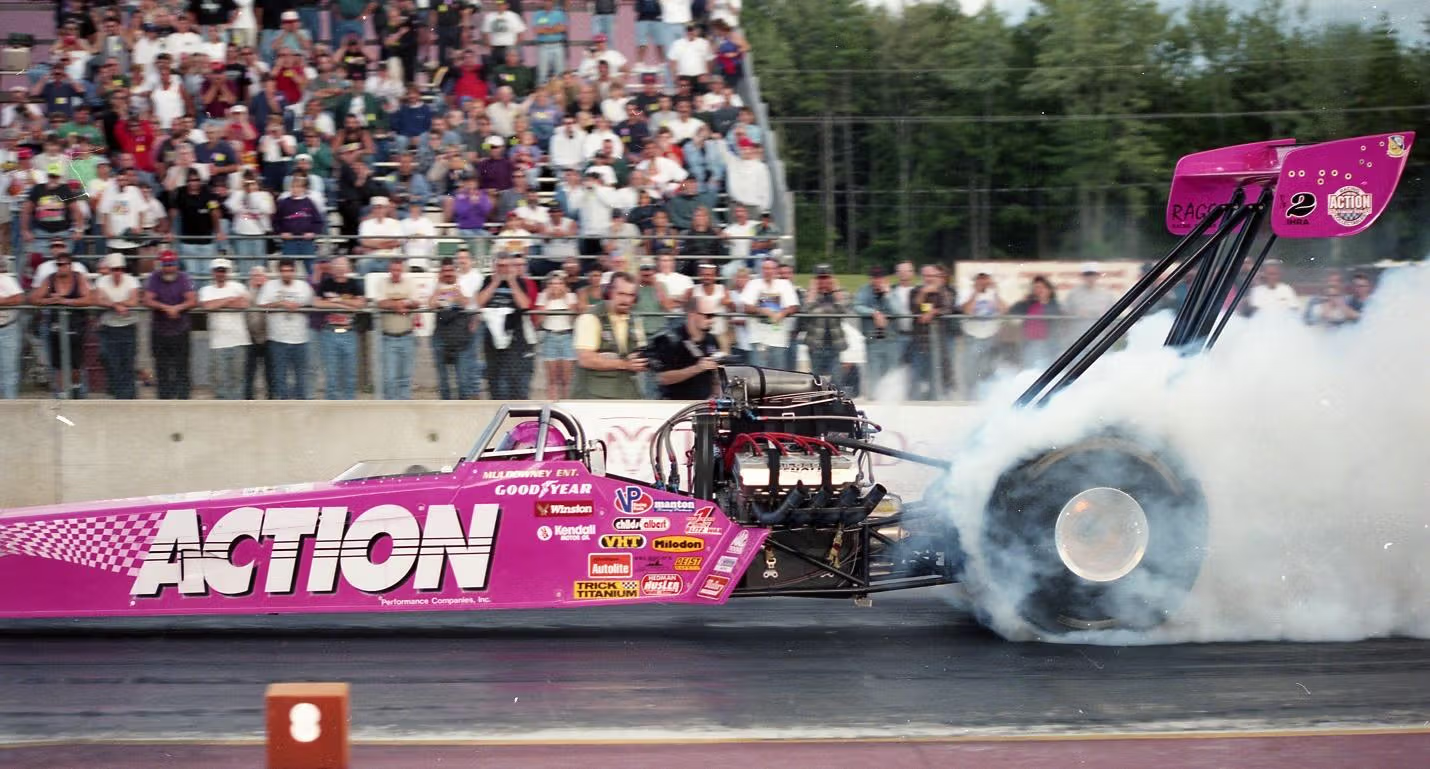
Image Credit: Wikimedia Commons
Shirley Muldowney
The Auto Racing All-American team made news in 1975 when Shirley Muldowney become the first female member. She made headlines again in 1976 as Drag News’ Top Driver of the Year. Shirley was just getting started showing off her driving skills.
She became the first woman to win the NHRA Winston World Points Championship in 1977. An Outstanding Achievement Award from the U.S. House of Representatives followed, along with three consecutive wins at NHRA national events. Car Craft Magazine also named Shirley its Person of the Year.
The 1980s saw Shirley Muldowney win her second NHRA Winston world points championship, along with the AHRA world championship in 1981. She was voted into the Auto Racing All-American team for the fifth time. Car Craft Magazine All-Star Team also choose Shirley as its Top Fuel Driver of the Year. It’s the second time she claimed the award.
Shirley Muldowney took home her third NHRA Winston Points Champions in 1982 and was inducted into the International Motorsports Hall of Fame in 2004.
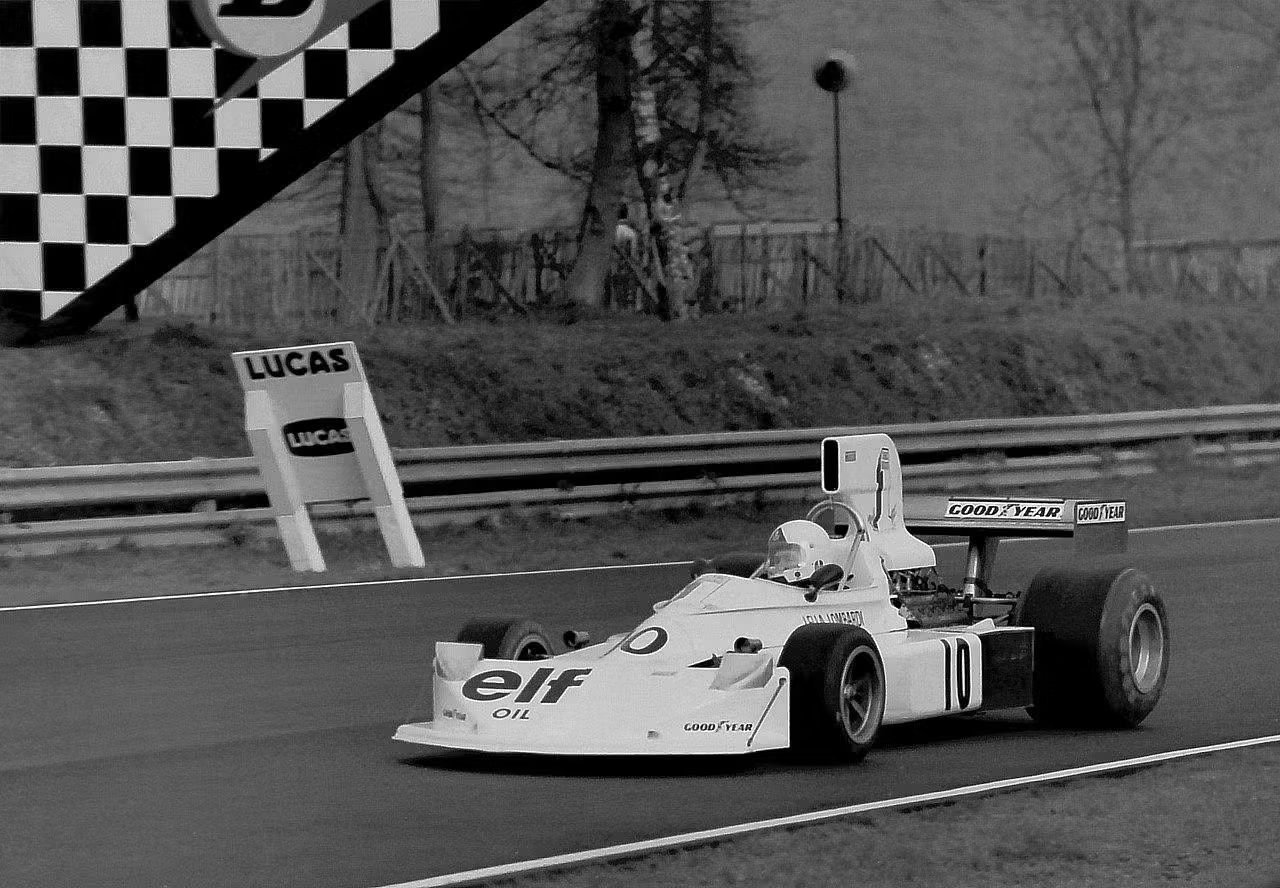
Image Credit: Wikimedia Commons
Lella Lombardi
Formula One driver Maria Grazia “Lella” Lombardi is one of the first females to break into the scene, starting her career in 1974. Her career spans 17 Grand Prix races and a half-a-point career finish.
She is the first female driver to claim a top-six finish at the 1975 Spanish Grand Prix, a world championship race. Qualifying at the 1974 Race of Champions in Brands Hatch. Lella became the first female driver in history to qualify, finishing 14th in a Lola-Chevrolet.
Lella also found success with sports cars. She was a four-time participant in the 24 Hours of Le Mans. Her best finishing in the race occurred in 1976. Winning the 6 Hours of Vallelunga and the 6 hours of Pergusa in 1979, Lella retired in 1988. She is still active in motor racing with her team Lombardi Motorsports.
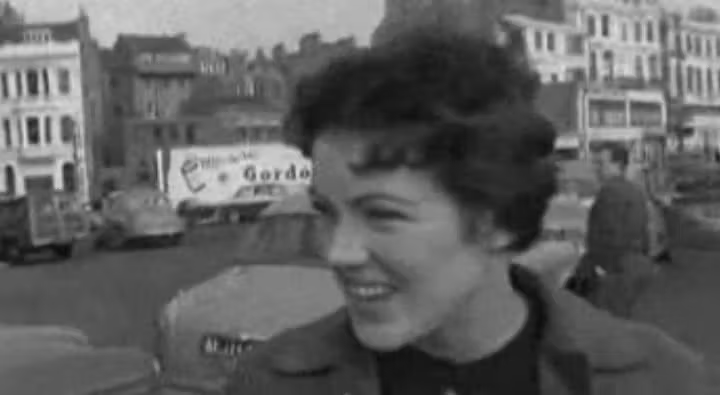
Image Credit: Wikimedia Commons
Pat Moss
European rallies in the mid-1950s have a rising female star in driver Pat Moss. One of the best female race car drivers, she has three wins and seven podium finishes. She is also the five-time European Ladies’ Rally Champion.
Her love for racing began in 1953, driving in club rallies. Invited to drive in the RAC rally in Great Britain, Moss was given an MG TF. For the next few years, she was competing in a variety of cars. She competed with an Austin A90 in the 1956 Monte Carlo rally. The same year, she was driving a Minor 1000 in the epic Liège-Sofia-Liège. She took fourth place in the race in 1958. It’s the first time a female race car driver has finished in the top ten.
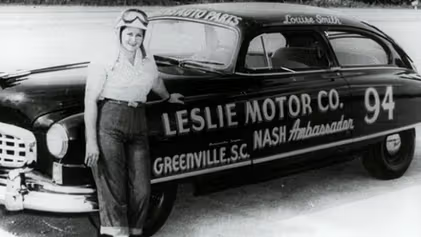
Image Credit: Wikimedia Commons
Louise Smith
Born in Greenville, South Carolina, Louise Smith is known as the first lady of stock car racing. Entering her family’s Ford coupe in the 1947 NASCAR Daytona stock car race, she was hooked even though she rolled the vehicle.
Racing modified, she won 38 titles holding off male competitors. Louise’s aggressive driving style attracted fans throughout her eleven-year career. Her fearless driving also resulted in multiple accidents, including broken bones and hospital visits. She was inducted into the International Motorsports Hall of Fame in 1999.
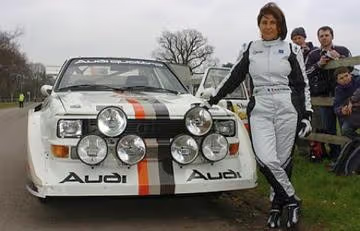
Image Credit: Wikimedia Commons
Michele Mouton
Michelle Mouton is one of the best female rave drivers. Starting as a rally driver, Michelle has four wins and she’s a runner-up in the 1982 drivers’ world championship.
She got her start as a co-driver, but by 1975 she was driving a two-liter prototype class in the 24 Hours, Le Mans. In 1977, Michelle signed with Fiat France and won the Tour de France Automobile the following year. Her WRC events at home also remained consistent throughout her career.
Her driving skills and resulting victories throughout the early 1980s put Michelle in the same class as Walter Rohrl. Her records include the fastest time at the Pikes Peak International Hill Climb, in 1985. She is the first female driver to win a major rally championship, a feat she accomplished in 1986.
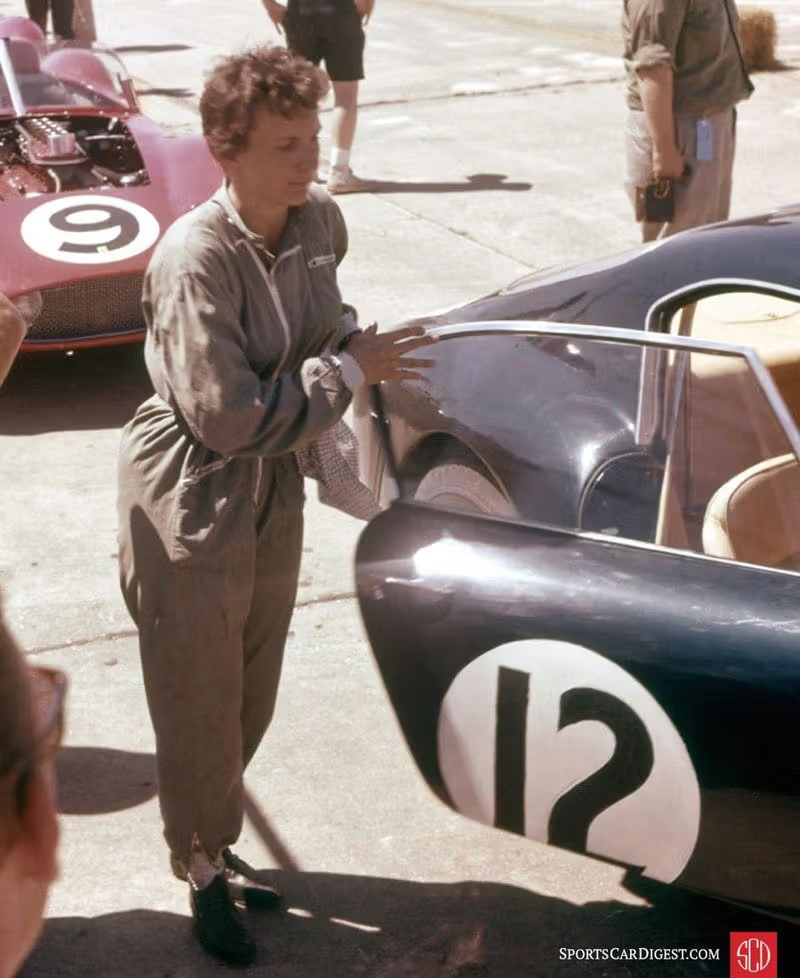
Image Credit: Wikimedia Commons
Denise McCluggage
Celebrated journalist Denise McCluggage is also one of the top female race car drivers. Her numerous accomplishments include winning the Nassau Ladies Race 1 in 1956. Denise goes on to win the Watkins Glen Grand Prix Ladies Race in 1957, along with other wins up to the 1964 Monte Carlo Rally.
Her racing career may have ended in the early 1960s, but she remains active in motorsports. She was inducted into the Automotive Hall of Fame in 2001. She was an active contributor at Auto Week until her death in 2015.
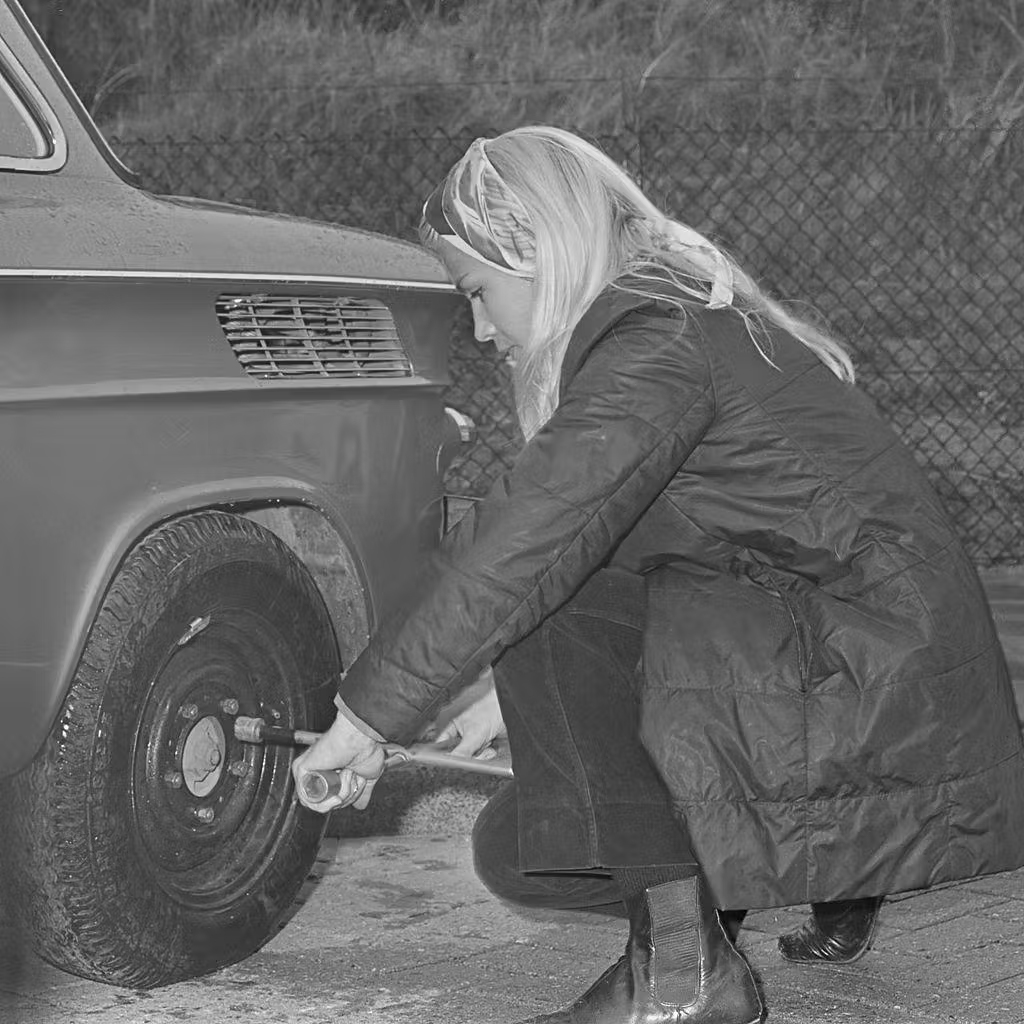
Image Credit: Wikimedia Commons
Marie-Claude Charmasson
With a career spanning from 1965 to 1974, Marie-Claude Charmasson often does not receive the recognition she deserves. Her career spans rallies and circuit racing, driving the Chevrolet Corvette, Opel Kadett, Chevrolet Camaro, and Opel Commodore.
Her final lap found her driving a BMW 3.5 CSI at the 1976 production car championship. With two class wins in big-block Chevys, Marie-Claude is a female driver that other women in motorsports can look up to. After racing, Marie-Claude became a photographer for the Grand Prix and 24 Hours LeMans.
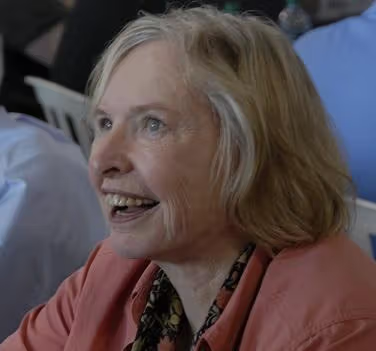
Image Credit: Wikimedia Commons
Janet Guthrie
Setting records in 1977, Janet Guthrie is the first woman to compete in the Indianapolis 500 and the Daytona 500. She took home a ninth-place finish at the Indianapolis 500 with a team she owns and manages in 1978.
She competed in 11 Indy-car races, finishing fifth in Milwaukee, and qualifying in 4th place at the 1979 Pocono 500 Triple Crown to name a few of her accomplishments.
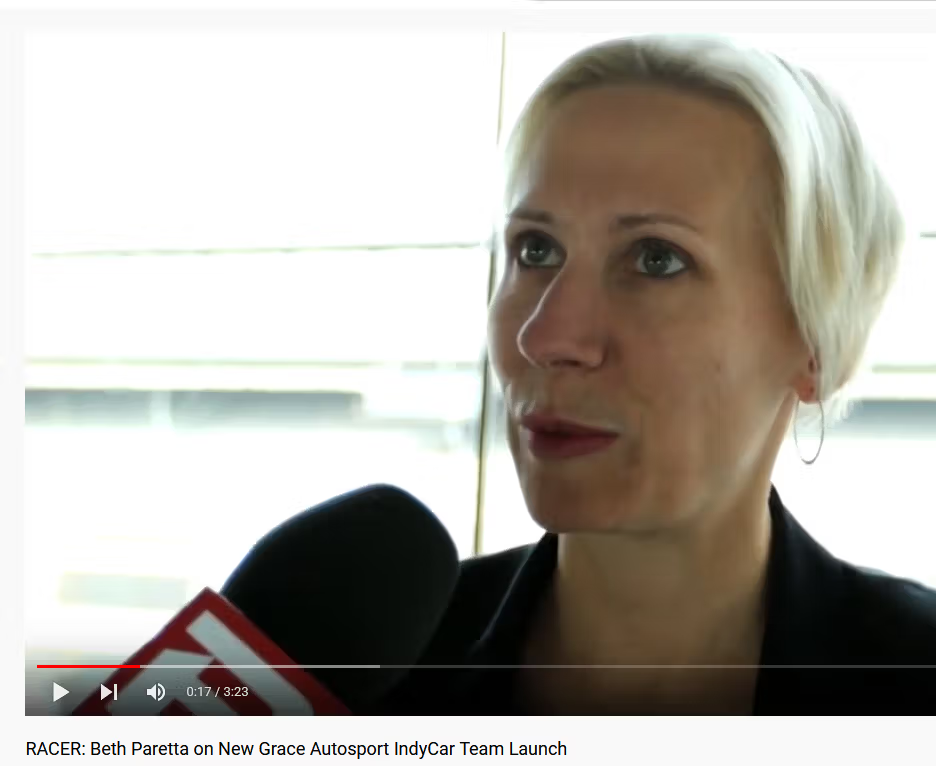
Screen Cap: YouTube
Beth Paretta
Indy team owner Beth Paretta is proud of her primarily female team. Along with herself as owner, the driver and crew are women getting car 16 ready for the Indianapolis 500.
Team Paretta is part of an effort championed by track owner Roger Penske’s initiative to bring equality and change to racing. They are making history, alongside past greats like Janet Guthrie and Maude Yagle. Janet is the first woman to drive in the Indy 500 and Maude is the first female team owner.
Driving for Team Paretta is Simona de Silvestro. Her last appearance at the Indy 500 took place in 2015.
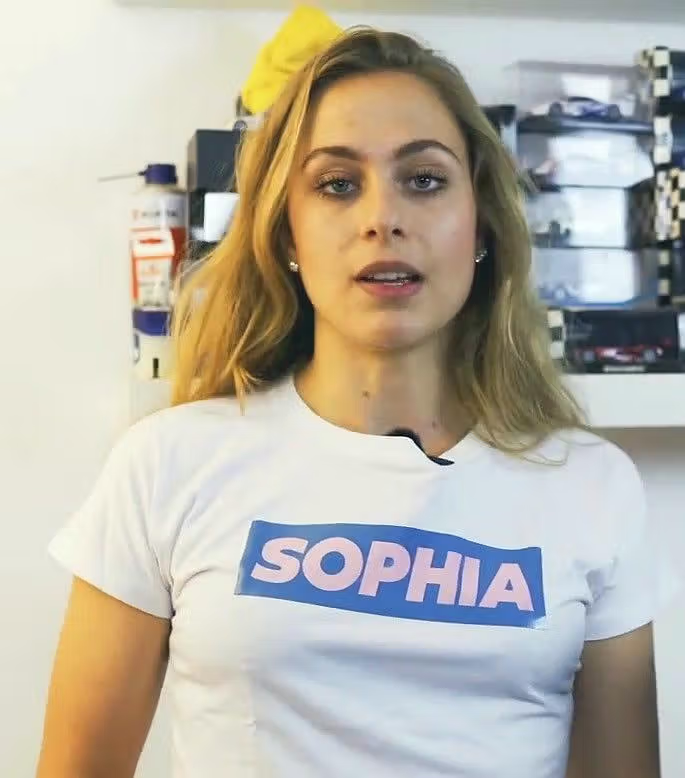
Sophia Florsch Image Credit: Wikimedia Commons
Challenges for Women in Formula One Racing
Formula One (F1) racing has long been a male-dominated sport. Some older racing enthusiasts aren’t ready to see women enter motorsport.
While female drivers are making names for themselves in rallies and other types of motorsports. F1 has remained closed to women. German racing driver Sophia Florsch is working on changing men’s attitudes.
Women face a couple of primary obstacles to their acceptance in the world of Formula One racing.
The Older Generation
Formula One is still seen as a man’s sport by older generations. It is hard for them to envision changes to the sport that includes women driving F1 cars.
With Sophia competing in the European and German Touring Car Masters (DTM) team, she is working towards changing misconceived preconceptions about women behind the wheel.
The lack of support and encouragement for other drivers at the beginning of her career is one of the hardest things Sophia has overcome. The lack of support often extends to the racetrack offices, and even from some older fans.
Sophia believes the sport needs more female role models and support from sponsors, companies, and teams.
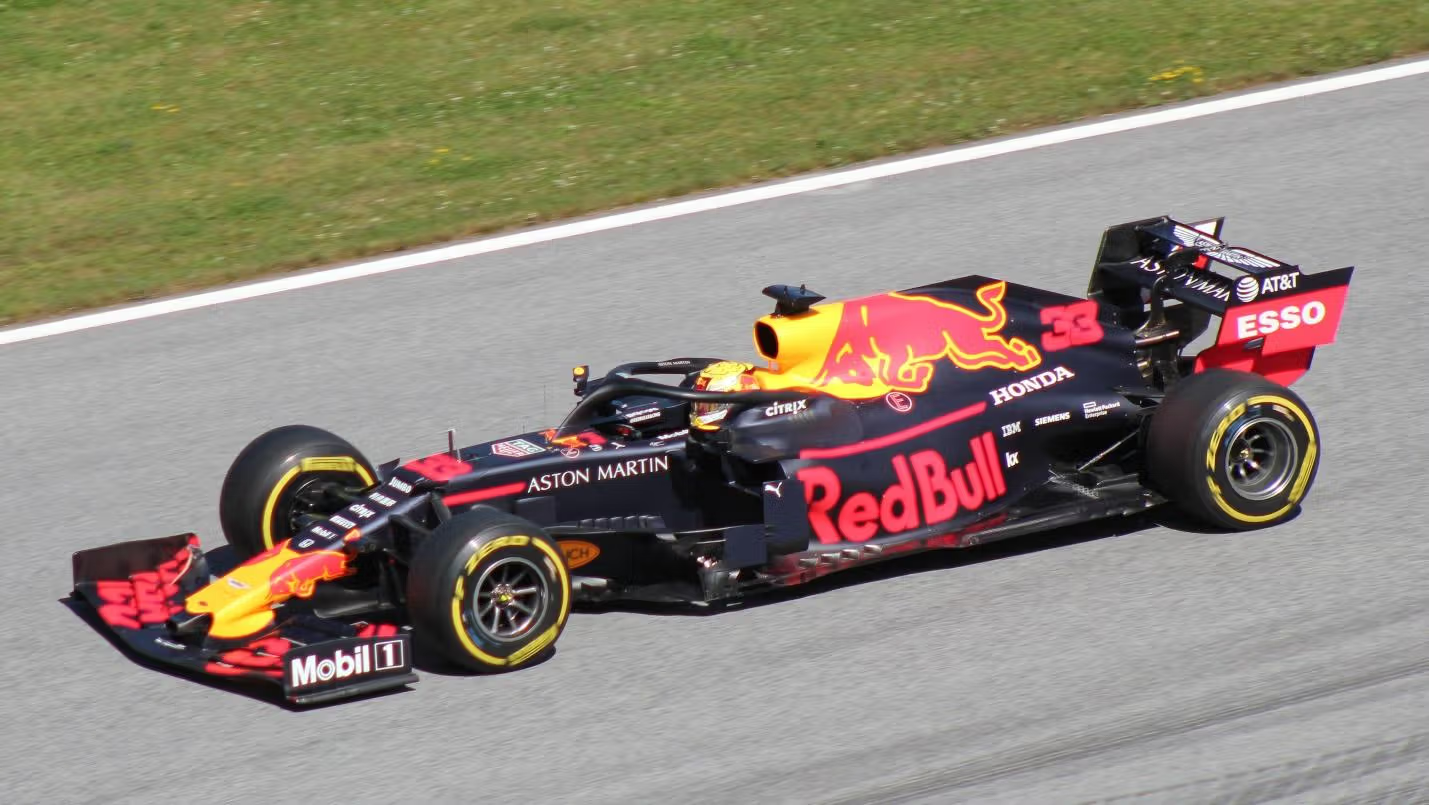
Image Credit: Wikimedia Commons
Sponsors Need to Take Risks
A Formula One team cannot succeed without financial backing from sponsors. It’s the same at professional and junior levels. With backing from sponsors, more women can enter the junior levels and have the financial support necessary to move up to the professional circuit.
Currently, female drivers are only receiving a fraction of the support from sponsors that men see. Money does make a difference in every aspect from the crew to the vehicle.
Lella Lombardi is the last female driver in a Formula One race, and that was in the 1960s. Even the test-driving field is seeing a lack of women drivers.
Is Formula One Racing on Track for Female Drivers?
Formula One racing has a women’s league. The W-Series began a few years ago, but it is not receiving the same media attention as the original F1 series.
The W-Series is designed to allow women drivers to get practice on the track for free. The downside is that no women have crossed over from the W-series to the F1 races.
The Federation Internationale de l’Automobile (FIA) is working to clear the way for young female F1 drivers. Susie Wolfe is the ambassador for the program. The former Williams F1 test driver is working to inspire young girls to consider a career in racing with the FIA’s Girls on Track mentorship program.
Conclusion
Women have a larger presence in motorsports than some people realize, going back over 120 years. Even though women have been racing and winning for over a century, it remains a man’s sport.
Things are improving for female drivers, even in the male-dominated world of Formula One racing. With more women entering the sport, some young girls will have plenty of role models to emulate when they get behind the wheel.
Updated